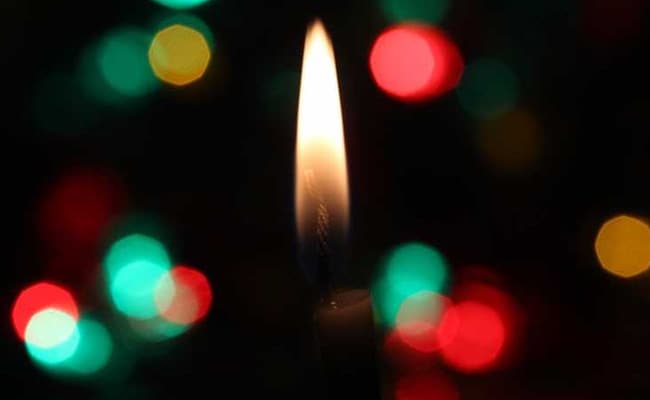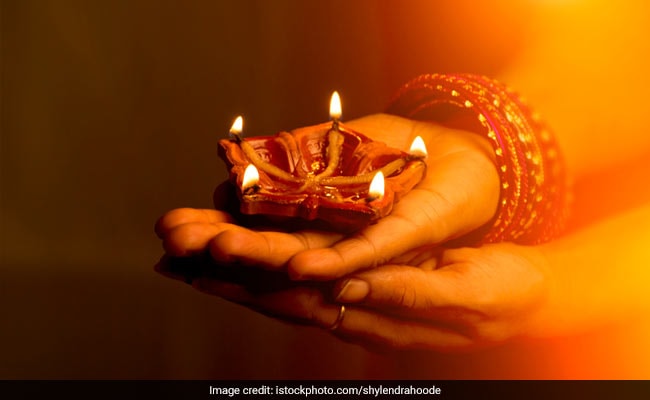
Diwali Or Deepawali: 10 Things Students Should Know About 'The Festival Of Lights'
Diwali is here. The festival which represents the victory of light over darkness and good over evil would be celebrated all across subcontinent. The festival brings joy and happiness to all sections of people across the length and breadth of the country. Several important personalities have requested Indians to celebrate Diwali or Deepawali in a pollution free manner, after the ongoing air pollution catastrophe in several Indian cities created much panic. One of the most popular festivals of Indian subcontinent, Diwali signifies the victory of light over darkness, good over evil, knowledge over ignorance, and hope over despair.
 Diwali Or Deepawali 2017: 10 Things Students Should Know About 'The Festival Of Lights'
Diwali Or Deepawali 2017: 10 Things Students Should Know About 'The Festival Of Lights'
Here are 10 important things students should know about the festival of lights:
1. The word "Deepawali" consists of two words. The word "Deep" means "light" and the word "avali" means "a row". Hence, "Deepawali" means "a row of lights". Its celebration includes millions of lights shining on housetops, outside doors and windows, around temples and other buildings in the communities and countries where it is observed.
2. In the Gregorian calendar, Diwali night falls between mid-October and mid-November. It is important to know that the Diwali date falls on the 15th day of Kartik, which is a Hindu month. Hence, the exact Diwali date varies every year.
3. Before Diwali night, according to tradition, people clean, renovate, and decorate their homes and offices.
4. On the same night that Hindus celebrate Diwali, Jains, Sikhs and Newar Buddhists celebrate their own versions of the festival.
5. The holiday is known as Dipawoli in Assames, Dipaboli or Dipali in Bengali, divali in Gujarati, Punjab and Hindi, Deepavali in Kannada and Malayalam, Dipabali in Odia, Diyari in Sindhi, Teepavali in Tamil and Telugu, Galungan in Balinese and Swanti in Nepali or Tihar in Nepali.
6. Diwali preparations and rituals typically extend over a five-day period.
7. No firecrackers would be sold in the Delhi-national capital region (NCR) till October 31, the Supreme Court said on October 13. The court also asked the Delhi Police to implement its order banning sale of firecrackers. The court refused to relax its October 9 order banning the sale of firecrackers while dismissing a plea by traders who had sought its permission to sell crackers for at least a day or two before Diwali on October 19.
8. Every year, loud sound from firecrackers causes stress, terror and even death in strays and birds. This year will be no different, unless we become more responsible. The sound of firecrackers can be excruciating to a dog or a bird. The festival of lights calls for celebrations and merrymaking. Do spare a thought for the animals and the birds that are as much a part of this society as we are.
9. Union Minister for Environment, Forest and Climate Change, Dr. Harsh Vardhan, launched the "Harit Diwali, Swasth Diwali" campaign, on August. Addressing a gathering of about 800 children from schools of Delhi and NCR, the Minister impressed upon the children the importance of their contribution towards reducing pollution by not bursting harmful fire crackers during Diwali.
10. Apart from India, Diwali or Deepavali is an official holiday in several countries including Fiji, Nepal, Singapore and Sri Lanka.
Read also:
This Diwali, 5 Things You Can Do Instead Of Bursting Firecrackers
Diwali 2017: Significance Of Diwali Or Deepawali, The Festival Of Lights
Diwali 2017: 5 Gift Ideas For Employees
Click here for more Education News
Diwali 2017: 10 Things Students Should Know About 'The Festival Of Lights'

Here are 10 important things students should know about the festival of lights:
1. The word "Deepawali" consists of two words. The word "Deep" means "light" and the word "avali" means "a row". Hence, "Deepawali" means "a row of lights". Its celebration includes millions of lights shining on housetops, outside doors and windows, around temples and other buildings in the communities and countries where it is observed.
2. In the Gregorian calendar, Diwali night falls between mid-October and mid-November. It is important to know that the Diwali date falls on the 15th day of Kartik, which is a Hindu month. Hence, the exact Diwali date varies every year.
3. Before Diwali night, according to tradition, people clean, renovate, and decorate their homes and offices.
4. On the same night that Hindus celebrate Diwali, Jains, Sikhs and Newar Buddhists celebrate their own versions of the festival.
5. The holiday is known as Dipawoli in Assames, Dipaboli or Dipali in Bengali, divali in Gujarati, Punjab and Hindi, Deepavali in Kannada and Malayalam, Dipabali in Odia, Diyari in Sindhi, Teepavali in Tamil and Telugu, Galungan in Balinese and Swanti in Nepali or Tihar in Nepali.
Diwali greetings to all. As we celebrate with our families, let us promote sensitivity to others and to our environment #PresidentKovind
— President of India (@rashtrapatibhvn) October 19, 2017
6. Diwali preparations and rituals typically extend over a five-day period.
दीपावली के पावन पर्व पर सभी देशवासियों को हार्दिक शुभकामनाएं। #HappyDiwali to everyone! pic.twitter.com/pFQe9rYrSg
— Narendra Modi (@narendramodi) October 19, 2017
7. No firecrackers would be sold in the Delhi-national capital region (NCR) till October 31, the Supreme Court said on October 13. The court also asked the Delhi Police to implement its order banning sale of firecrackers. The court refused to relax its October 9 order banning the sale of firecrackers while dismissing a plea by traders who had sought its permission to sell crackers for at least a day or two before Diwali on October 19.
Diwali Mubarak ! Nous célébrons à Ottawa ce soir. Bonne fête de #Diwali ! pic.twitter.com/tTsNZI3ePa
— Justin Trudeau (@JustinTrudeau) October 17, 2017
8. Every year, loud sound from firecrackers causes stress, terror and even death in strays and birds. This year will be no different, unless we become more responsible. The sound of firecrackers can be excruciating to a dog or a bird. The festival of lights calls for celebrations and merrymaking. Do spare a thought for the animals and the birds that are as much a part of this society as we are.
This #Diwali, we are celebrating the light of education - a powerful opportunity that every child deserves. #BooksForDiwali #HappyDiwali pic.twitter.com/zjGXwDSffY
— MaryKay Loss Carlson (@USAmbIndia) October 18, 2017
9. Union Minister for Environment, Forest and Climate Change, Dr. Harsh Vardhan, launched the "Harit Diwali, Swasth Diwali" campaign, on August. Addressing a gathering of about 800 children from schools of Delhi and NCR, the Minister impressed upon the children the importance of their contribution towards reducing pollution by not bursting harmful fire crackers during Diwali.
Uttar Pradesh: Banks of river Saryu lit up with lights & earthen lamps as part of #Diwali celebrations. pic.twitter.com/IDMc1EFRMb
- ANI UP (@ANINewsUP) October 18, 2017
10. Apart from India, Diwali or Deepavali is an official holiday in several countries including Fiji, Nepal, Singapore and Sri Lanka.
Read also:
This Diwali, 5 Things You Can Do Instead Of Bursting Firecrackers
Diwali 2017: Significance Of Diwali Or Deepawali, The Festival Of Lights
Diwali 2017: 5 Gift Ideas For Employees
Click here for more Education News
